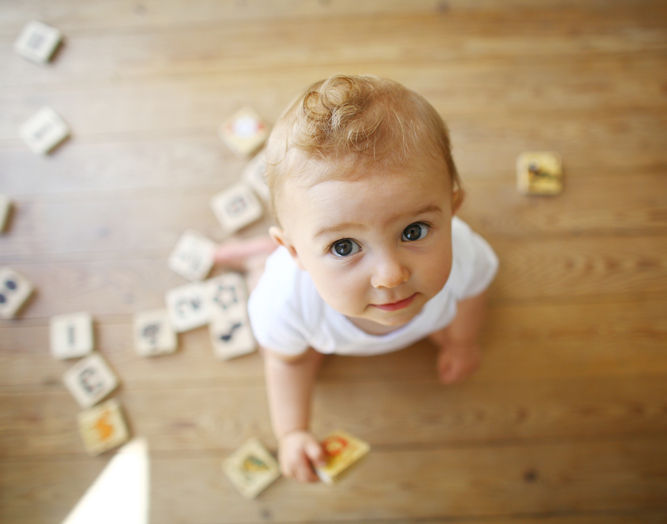Breastmilk is the best for babies. The World Health Organisation recommends exclusive breastfeeding for the first six months of life. Unnecessary introduction of bottle feeding or other food and drinks will have a negative impact on breastfeeding. After six months of age, infants should receive age-appropriate foods while breastfeeding continues for up to two years of age or beyond. Consult your doctor before deciding to use infant formula or if you have difficulty breastfeeding.
ENTERTAINING AND EDUCATING YOUR 1-YEAR-OLD
Despite life as we know it slowing down due to the Coronavirus outbreak, your 1-year-old’s development doesn’t stop. They’re at that wonderful age when they’re naturally going to start moving around more, exploring the confines of their environment and reacting to different things. And because you’ll be there with them, here are some tips and tricks to make the most out of their wonderful age of discovery.

What can they do at this age?
1-year-olds are at an age where they'll learn, observe and imitate very quickly. They're also learning the concept of little and large and their motor skills are improving every day. On top of that, they can understand you and will start to react to different things. What’s great is that babies who show this kind of development are ready for games. So, you can offer them toys and activities suitable for their age.
What are the best toys?
Toys for 1-year-olds should support their cognitive development, as well as be fun and harmless. Also, at this time, teething toddlers will suck on and bite some of the small objects around them. Make sure such objects don’t damage their mouths and that these objects are disinfected beforehand. Here are some tips to help you choose a suitable toy.
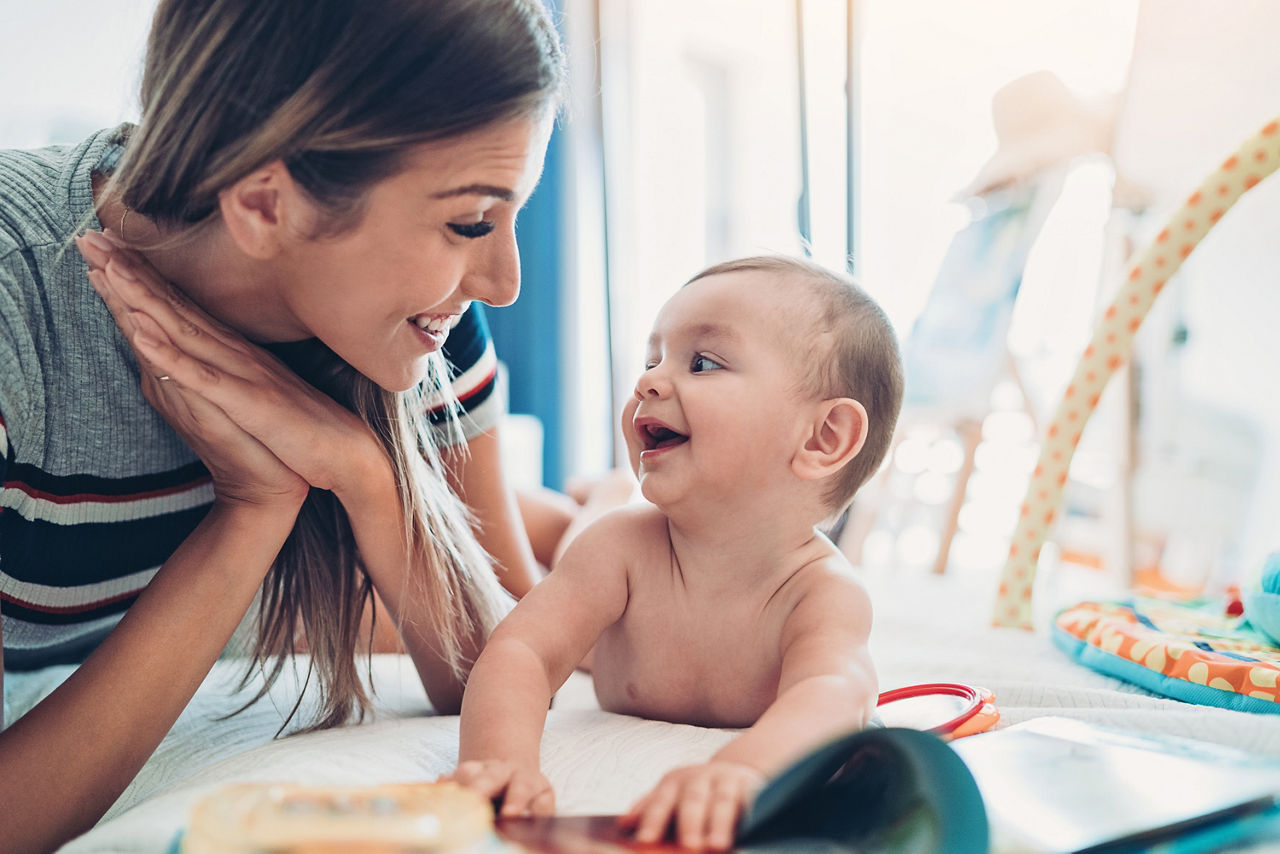
▪ Make sure the toy has been properly certified as meeting all quality and health standards in your country. For example: Consumer Protection (Consumer Goods Safety Requirements) Regulations (CGSR)
▪ Avoid fluffy or small toys to avoid your baby swallowing or biting them.
▪ Colorful picture books are great and help to develop their visual and spatial intelligence.
▪ Toys they can easily hold are more fun to play games with
▪ Colorful cubes that fit inside one another and puzzles with large pieces contribute to their intelligence
▪ Musical instruments or toys that make sounds stimulate their reactions and support their auditory intelligence
▪ Playing with soft, squeezable balls improves their motor skills and draws their attention. It also encourages walking instead of crawling.
Some games to help them learn
Playing games with your toddler will help their cognitive development. There are loads of great games you can play together that will educate and entertain you and your little one.
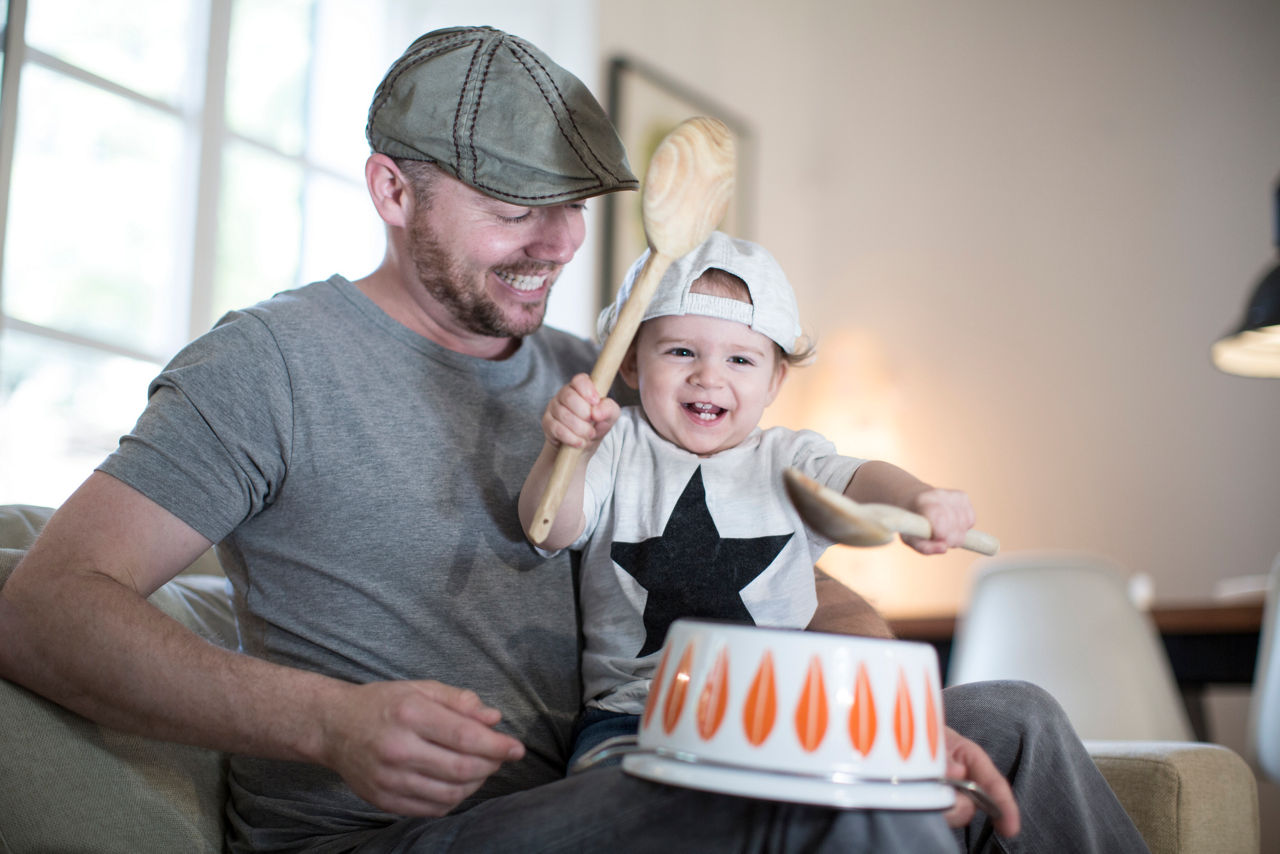
Make your own music
Partake in a game of musical discovery with rattles, spoons, pots, pans, bells, gongs, or anything else that makes sounds. Both you and your toddler can make music together and it will help them recognize different sounds as well as improve their coordination.
Have a telephone call
If there's an old phone you don't use or a toy phone, you can pretend to "talk" to each other and make different sounds. This game is both fun and helps develop language and social skills as they try to imitate the sounds you make.
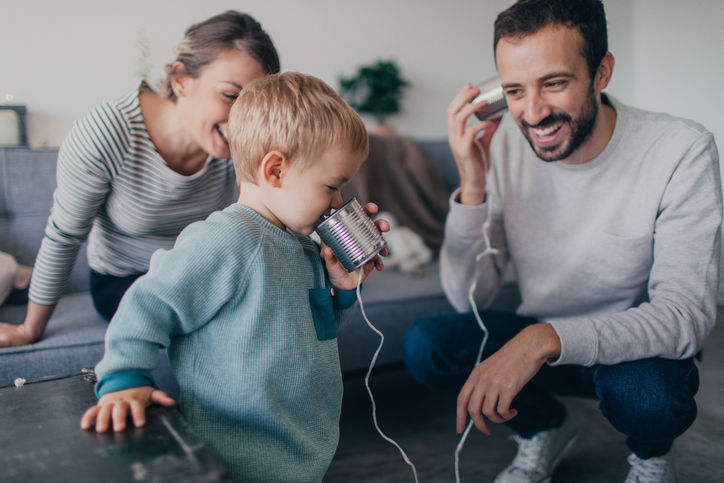
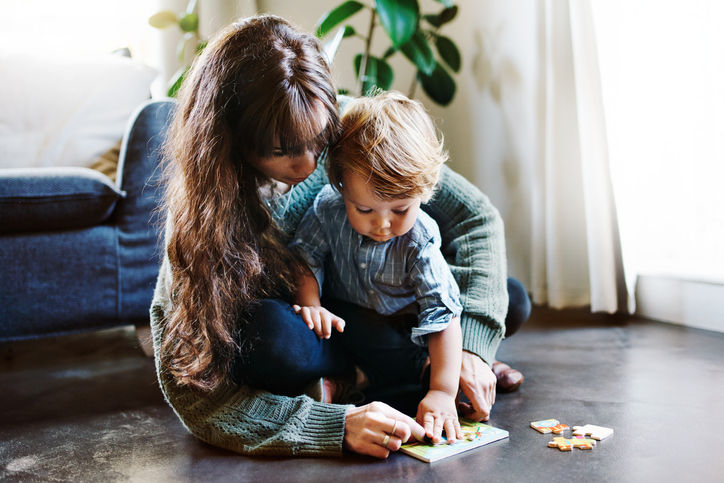
Build together
It's time to play with age-appropriate puzzles or Lego blocks. These toys are normally recommended for kids aged 2 and up. But let them watch you complete a puzzle or build something and then they can place some pieces on it. This shows them how to complete things together and develops their awareness of shapes and colors.
Count together
Count your little one’s fingers and toes, or count the number of stairs that you climb, or count the toys as you put them away in a basket. They don’t have to count just yet, but they will be learning how numbers work.
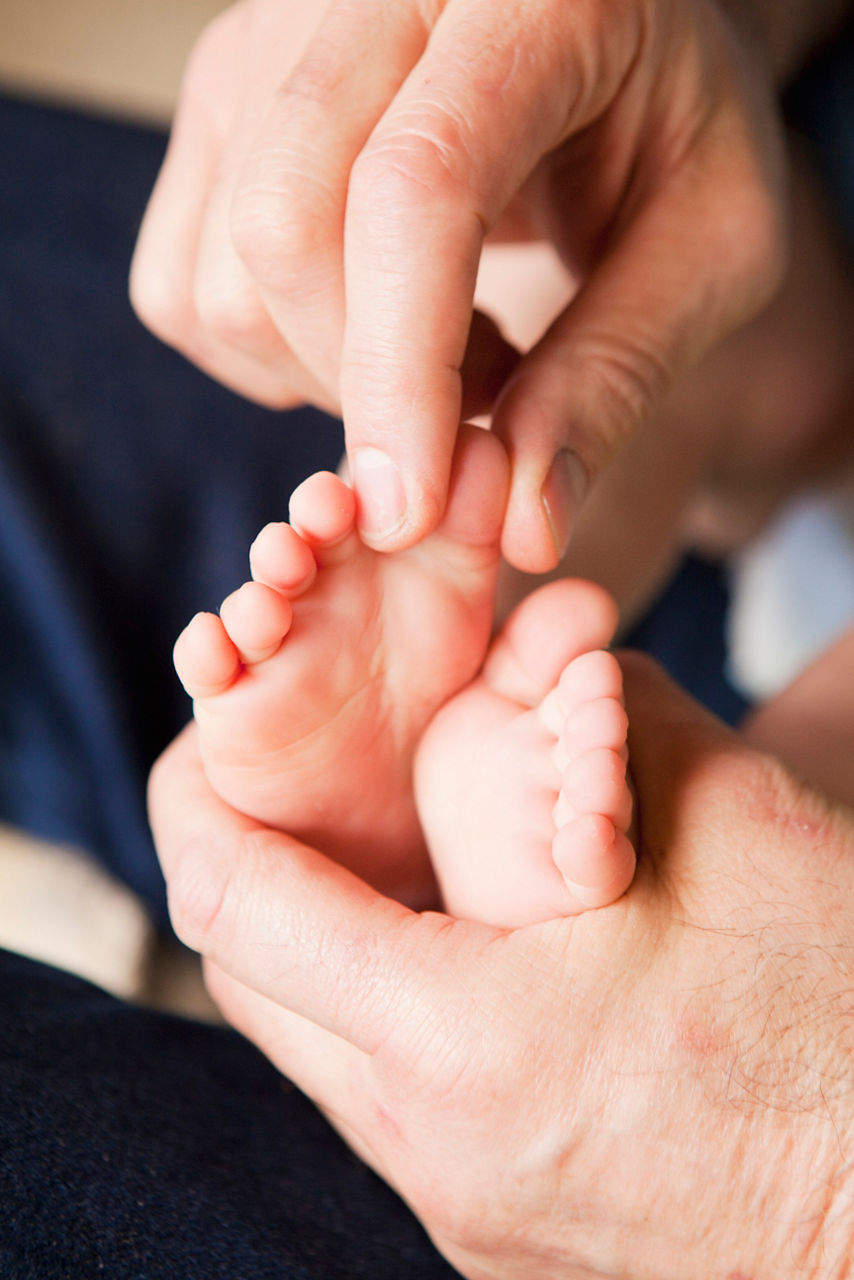
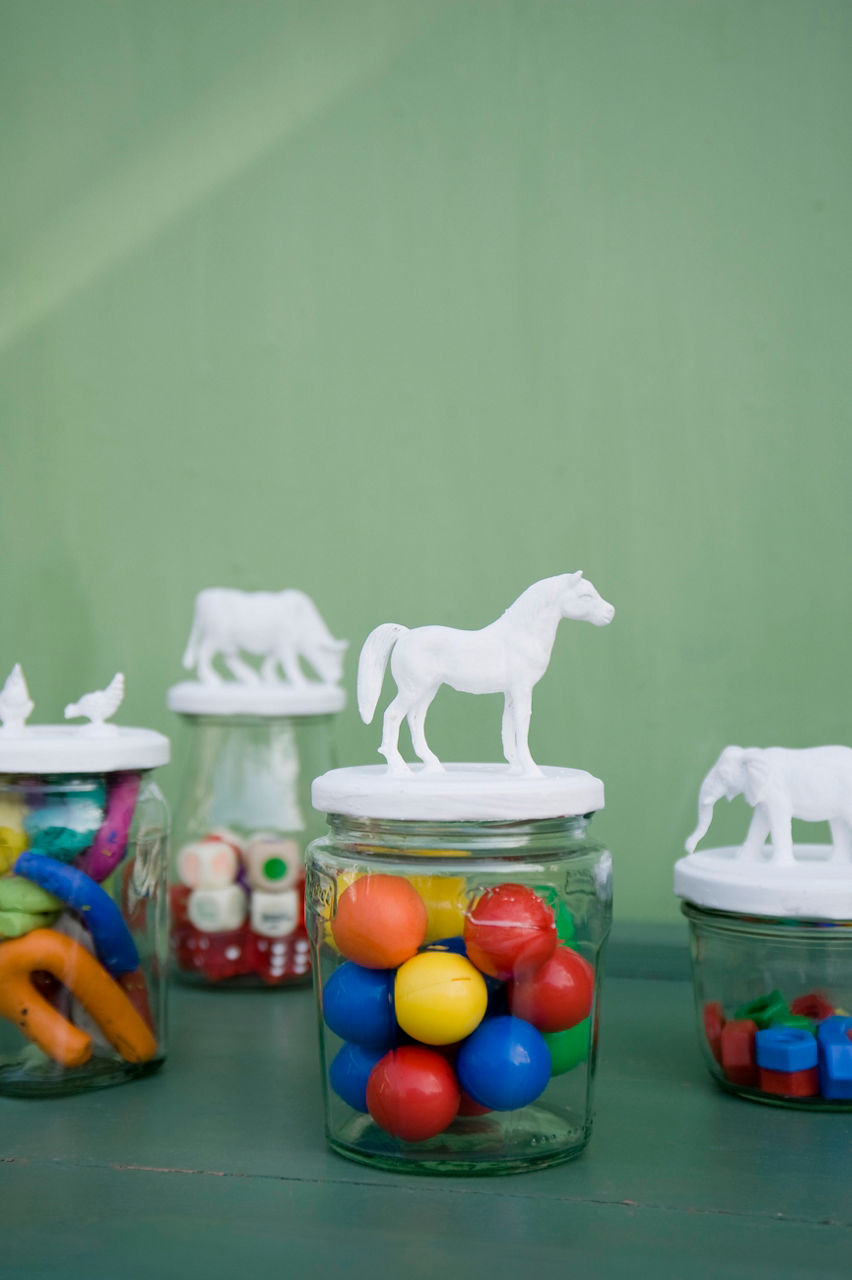
Make some sensory bottles
Fill some empty plastic bottles with materials of different colors, sizes and shapes, sand, beans etc. Put water in some of the bottles to mix it up and close the lid. Let your little one pick them up, shake them and examine the contents.
And as always, make sure you wash your and your baby’s hands before and after playtime! And even though it may be tough as he or she is so irresistible, avoid touching his or her face (and your own!)

Connect with our team of experts
We provide advice and support for you on your parenthood journey

